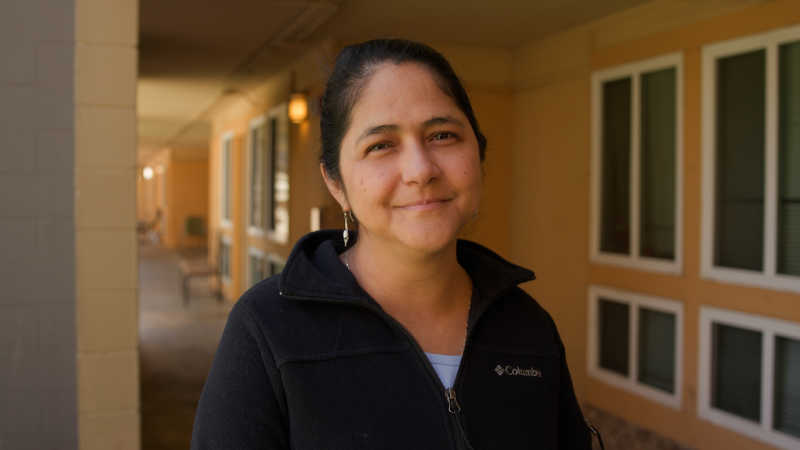Asian American Business Owners Talk Covid-19 Impact
It’s Friday, November 13th and Shion Aikawa, partner in the Tatsu-Ya local chain of restaurants, is overseeing the temporary closure of their East Austin ramen restaurant. One of their employees tested positive for Covid-19, so as a precautionary measure they have shut down for the weekend to allow other employees to get tested and to disinfect the restaurant. It’s one of many adjustments the restaurant has made since the start of the pandemic.
“Not only has it [Covid-19] kind of changed the way that we interact with our guests, we had to change our entire service model for some of our aspects of our concepts,” Aikawa says.
In March, like many restaurants, Tatsu-Ya had to close down to comply with stay-at-home orders.
“We were very limited on our to-go … once we learned that the restaurants had to close for dining, we were left with this feeling of what the hell are we gonna do,” Aikawa says.
It’s been months since then and Tatsu-Ya now offers a to-go menu, limited dining with reservation only and is enforcing strict Covid-19 guidelines for their staff and guests. But because the pandemic response is constantly evolving, preparing for unknowns can be challenging for business owners.
“I think that it's more along the lines of ambiguity. A lot of our restaurants, bars, hospitality businesses, we just want some clarity in knowing what to do,” Aikawa says. “In the beginning of the pandemic, it had been all over the place. It was basically a Russian nesting doll of guidances, mandates and changes that happened.”
Other business owners have had to adapt to changes as well. Marlon Alalay is the owner of the Filipino Asian Mart in Far Southwest Austin. His business was deemed essential when the city first enacted stay-at-home orders because of its grocery section, but the restaurant side of his business changed dramatically.
“At the beginning, my restaurant part of it was the money making machine inside my store ... but when Covid hit, my restaurant was actually hampered. … In lieu of that I was able to rely on my groceries, my canned goods and frozen section,” Alalay says.
According to the 2016 Central Texas Asian American Owned Businesses Report, there are more than 13,000 Asian American owned businesses in the Austin-Round Rock area. While about 28% of those businesses are uncategorized, about 25% of Asian American businesses deal with in-person customers including real estate, food and hospitality, and retail. Nisha and Ram Agrawal own Taj Fashions, a clothing store specializing in Indian wedding and event attire.
“These dresses are so custom, it's not like we can just provide various options and generic options that they can pick online,” Ram Agrawal says. “So that made it more difficult for us during this pandemic.”
Sameh Vares appeals to a similar clientele base. She owns an online flower shop in Austin and her main business is weddings and special events. Like Ram and Nisha, Vares’ business has suffered since the city has limited the number of in-person gatherings to help stop the spread of the virus.
“We pretty much have not accepted any contracts or orders,” Vares says. “I don’t know when we can all go back to just that normal routine of our everyday flower business.”
Racism has also affected Asian American businesses this year. Politicians including President Trump repeated racist references to Covid-19 as the “China virus” and “the kung flu,” and perpetuated a slew of false information regarding the spread of the virus that has fueled a backlash against the Asian American community.
“I think that [the] additional thing that has happened this year because of Covid and where the Covid virus started is all the Covid related racism against Asians ,” says Marina Ong Bhargava, outgoing CEO of the Greater Austin Asian Chamber of Commerce.
StopAAPIHate.org reports that 63 incidents of anti-Asian American hate occurred in Texas between March 19, 2020 and July 1, 2020, including verbal harassment and physical assault. At least five of those cases occurred in the Austin area.
“The things that have happened in Austin or Central Texas have been fairly minor. … It's just the stress of … knowing that you might be targeted because you [are] hearing of all these other reports happening around other parts of the country, other parts of the state,” Bhargava says.
Austinites can report incidents of Covid related racism on the City of Austin’s website. Yan Tung owns a State Farm Insurance agency in Austin. While she hasn’t experienced any of this racism herself, she believes it’s definitely affected other Asian American owned businesses.
“I think that the majority of my clientele, my customers, are actually non-Asian, and I have not experienced any of that personally,” Tung says. “And I feel very fortunate because I know people that have experienced it, and it's really unfortunate, and it stinks.”
Last week, the FDA approved a Covid-19 vaccine. Yet, there are still many unknowns businesses may face. Many are just hoping to hold on until things get back to normal.
“The future plan for our business is to survive, Aikawa says. “The great many problems that we have right now, are not under our control.” While what normal looks like may be hard to define right now, insurance agent Yan Tung remains optimistic.
“I’m definitely hopeful that things will be normal. I don’t even know what normal is anymore, now it feels like this is normal,” Tung says. “Just hoping it will go back to before this all started so that everyone’s back on their feet and feeling more secure about their future.”
Community journalism doesn’t happen without community support.
Got story ideas, advice on how we can improve our reporting or just want to know more about what we do? Reach out to us at news@klru.org.
And if you value this type of reporting, then please consider making a donation to Austin PBS. Your gift makes the quality journalism done by the Decibel team possible. Thank you for your contribution.
More in Business:
See all Business posts





Contact Us
Email us at news@klru.org